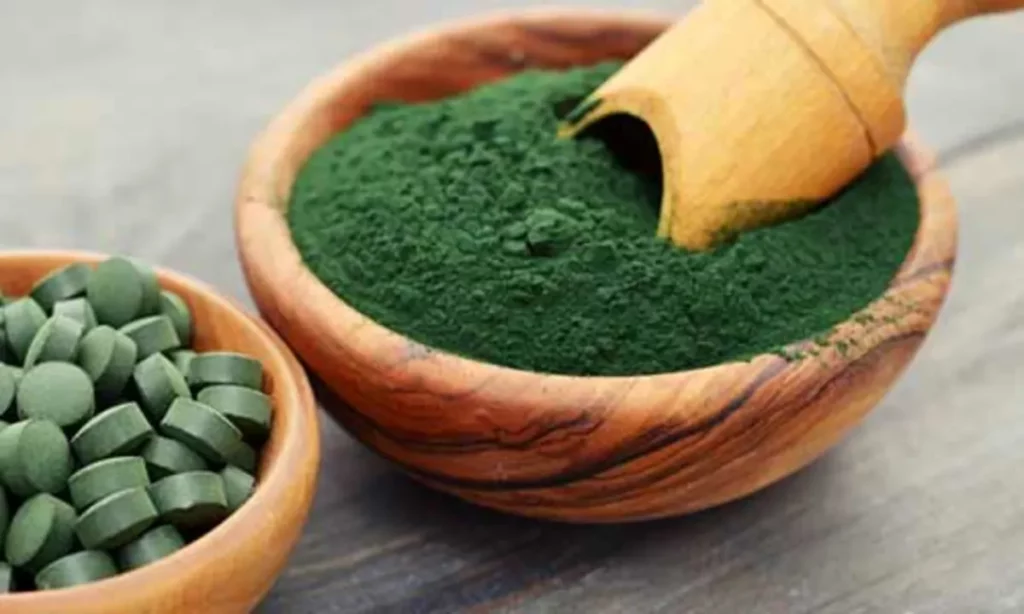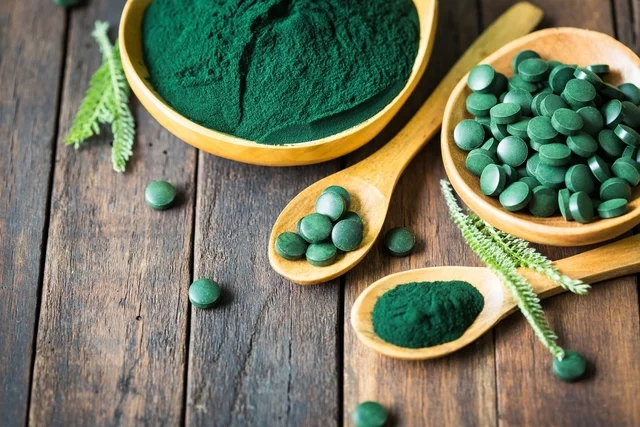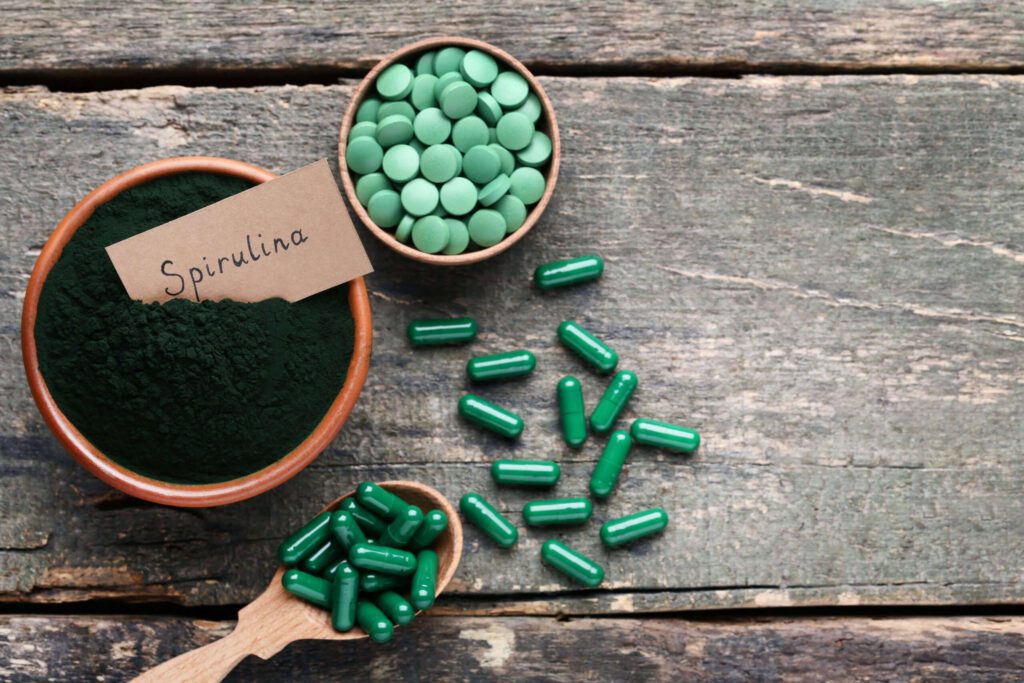Spirulina for fitness enthusiasts.

What is Spirulina ?
Spirulina is a type of blue-green algae that grows naturally in alkaline lakes and ponds in tropical and subtropical regions. It is widely recognized as a superfood due to its high nutrient content. Spirulina is rich in protein, vitamins, minerals, and antioxidants, and has been used to improve health and treat a variety of conditions, such as allergies, diabetes, and high blood pressure. It is available in powdered or capsule form and is often added to smoothies or used as a dietary supplement. It`s a nutritional supplement for athletes and fitness enthusiasts.

Spirulina has a number of potential health benefits due to its high nutrient content. Some of the benefits of eating spirulina include:
High in protein: Spirulina is a rich source of protein, containing all essential amino acids that the body needs to function properly. This makes it an ideal plant-based protein source for vegetarians and vegans.
Rich in vitamins and minerals: Spirulina contains a variety of vitamins and minerals, including B vitamins, iron, and magnesium. These nutrients are essential for maintaining good health and can help support the immune system, improve energy levels, and reduce inflammation.
Powerful antioxidant: Spirulina is a potent antioxidant, it can help protect the body against damage from free radicals, which can contribute to aging and disease.
May help lower cholesterol: Some studies have shown that spirulina may help lower cholesterol levels in the blood, which can reduce the risk of heart disease.
May help control blood sugar: Spirulina is beneficial on blood sugar levels, which could be helpful for people with diabetes.
May help improve gut health: Spirulina may help improve gut health by promoting the growth of beneficial gut bacteria and reducing inflammation in the gut.
Overall, eating spirulina as part of a balanced diet may help improve overall health and well-being.

Side- effects of esting spirulina
Spirulina is generally considered safe for most people when taken in recommended doses. However, some people may experience mild side effects, especially when consuming high doses. These may include:
Digestive upset: Some people may experience digestive symptoms, such as nausea, diarrhea, or abdominal pain. This is usually more likely to occur when consuming large amounts.
Allergic reactions: Spirulina is a type of algae and some people may be allergic to it. Symptoms of an allergic reaction may include hives, itching, and difficulty breathing. If you experience any of these symptoms, stop taking spirulina and seek medical attention immediately.
Interactions with medications: Spirulina may interact with certain medications, including blood thinners, immunosuppressants, and medications for high blood pressure. If you are taking any medications, speak to your healthcare provider before taking spirulina.
Contamination: Spirulina can be contaminated with harmful substances, such as heavy metals or microcystins, which are toxins produced by some types of blue-green algae. It is important to choose a reputable brand and ensure that the product has been tested for contaminants.
Spirulina is a nutrient-dense food that is packed with a variety of vitamins, minerals, and other important nutrients. Here are some of the key nutrients found in spirulina:

Nutrition in spirulina
Protein: Spirulina is a rich source of protein, containing up to 70% protein by weight. It is a complete protein, meaning it contains all nine essential amino acids that the body needs to function properly.
Vitamins: Spirulina contains a variety of vitamins, including B vitamins (thiamin, riboflavin, niacin, B6, folate, and B12), vitamin E, and vitamin K. It is also a good source of beta-carotene, which the body converts into vitamin A.
Minerals: Spirulina is a good source of several minerals, including iron, magnesium, potassium, and calcium. It also contains smaller amounts of other minerals, such as zinc, phosphorus, and selenium.
Antioxidants: Spirulina is a powerful antioxidant, containing a variety of compounds that can help protect the body against oxidative damage. These include beta-carotene, phycocyanin, and vitamin E.
Omega-3 fatty acids: Spirulina is a good source of omega-3 fatty acids, which are important for heart health and brain function.
Overall, spirulina is a highly nutritious food that can provide a wide range of important nutrients.







